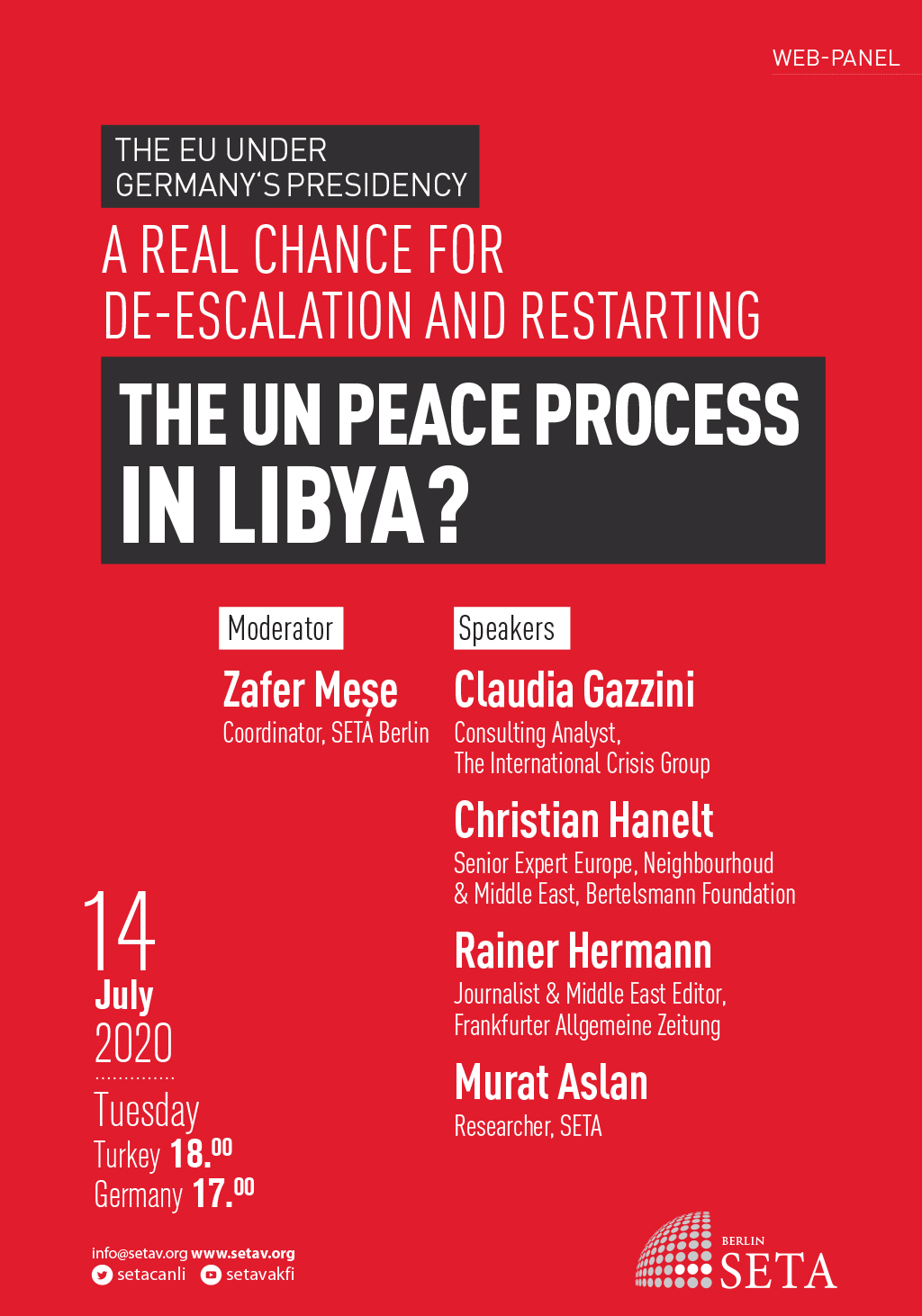Event
Web Panel: The EU under Germany‘s presidency | A real chance for de-escalation and restarting the UN peace process in Libya?
- Date : 14/07/2020
- Time : 17:00 : 19:00
- End : 14/07/2020
- Address :
- Moderator : Zafer Meşe, Coordinator, SETA Berlin
- Speakers :Claudia Gazzini, Consulting Analyst, The International Crisis Group
Christian Hanelt, Senior Expert Europe, Neighbourhoud & Middle East, Bertelsmann Foundation
Rainer Hermann, Journalist & Middle East Editor, Frankfurter Allgemeine Zeitung
Murat Aslan, Researcher, SETA
The high level Berlin conference under moderation of Germany in coordination with the UN took place on 19 January 2020 to find a solution to the conflict in Libya between the UN recognized Tripoli-based Government of National Accord (GNA) under Fayez al-Sarraj and the troops led by warlord Khalifa Haftar. The outcome on the table was as expected to stop the influx of weapons that external actors are making available to the warring parties. The conference participants committed themselves to “unequivocally and fully respect and implement the arms embargo established by United Nations Security Council Resolution 1970 (2011). However, the United Nations (UN) has not been able to effectively enforce the current embargo for a variety of reasons.
With major support from Turkey and at a lesser extent from Qatar, forces aligned with GNA in April and May 2020 inflicted a string of setbacks on warlord Haftar that led to his the setback in western Libya in June 2020. Haftar’s defeat shows how decisive foreign support has become for both sides since Haftar launched his offensive in April 2019 with military assistance from the UAE, Egypt and Russia, as well as political backing from Saudi Arabia and France. The setbacks Haftar is fcing extend beyond the military realm, signalling that a more profound realignment may be under way. His failures caused fractures within his camp aggravating discontent over his year-long war, its costly toll, and its general lack of direction. Thus, countries supporting Haftar are about to reassess their positions.
Meanwhile, European Union is far away from a united European position among member states with interests in Libya. The failure of recent individual French and Italian diplomatic initiatives all show the pattern of unilateralism based on national interests. The major challenge for the German presidency of the EU Council will be to ensure a clear and collective European approach by bridging divisions and competing interests among EU member states in order to have any chance to position itself as a key actor in a process from which it is being increasingly marginalised. As a consequence, the EU will further loose influence as a hesitant bystander.
Due to these current developments; SETA Berlin is pleased to host a distinguished web panel of experts to discuss the EU under Germany‘s upcoming presidency. By this, we will in particular focus on questions with regard to a real chance for de-escalation and restarting the UN peace process in Libya. Please kindly join us for a distinguished expert webinar on 14.07.2020 at 17:00h (German local time)
